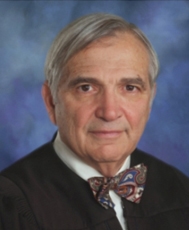
As part of our continuing coverage and analysis of Federal Rule of Evidence 902(14), we are highlighting a very notable Law Review article now available online, penned by Hon. Judge John Facciola as lead author, in the Georgetown Law Technology Review: Law of the Foal: Careful Steps Towards Digital Competence in Proposed Rules 902(13) and 902(14). U.S Magistrate Judge Facciola (Ret), who is now a Georgetown law professor, is well known for his many important and insightful court opinions involving eDiscovery issues when he was on the bench. So his analysis on Rules 902(13) (14), which exclusively address electronic evidence, will be influential.
To review, FRE 902(14) is a very important new rule, which provides that electronic data recovered “by a process of digital identification” is to be self-authenticating, thereby not routinely necessitating the trial testimony of a forensic or technical expert where best practices are employed, as certified through a written affidavit by a “qualified person.” This rule will have a significant impact on computer forensics and eDiscovery collection practices when it goes into effect later this year. A detailed discussion of Rule 902(14) can be found here.
A key takeaway from the Georgetown Law Technology article is that Facciola believes 902(14) will have a very positive impact by mainstreaming and standardizing electronic evidence collection practices and the supporting technology among the courts and attorneys. Facciola notes: “The proposed Rules will likely reduce litigation costs spent authenticating information, and help foster judicial efficiency and familiarity with technology. Authentication using hash values will allow courts and lawyers to focus on more pressing issues, and will provide courts with the assurance that presented digital evidence is, in fact, what it purports to be.”
Further to this point, Facciola notes that the written certifications provided by eDiscovery and computer forensics practitioners under Rule 902(14) “could illuminate for the court the underlying forensic science that will explain why the evidence being offered can be trusted and relied upon. This is, of course, a welcome alternative to lawyers and courts looking everywhere except the technological basis to determine the authenticity of an email or a Facebook entry.”
The article contains a detailed discussion of hashing as a process of digital identification, which Judge Facciola identifies as a very important process to fulfill the requirements of the Rule: “Hashing provides exactly the proof that Rule 902 requires: that the document is what the attorney states that it is.”
In one regard, Judge Facciola believes the goal of the new Rule is modest, but the Judge is addressing the overall admission of the electronic evidence at hand, including other potential evidentiary objections related to its content, such as hearsay, relevance, and other matters that are generally beyond the scope of a forensic collection and examination. From the perspective of eDiscovery and computer forensics collection practices however, the article confirms that the impact will be very significant and widespread across the practice.
Most of all, Judge Facciola predicts a meaningful intangible impact from the rule as judges and lawyers will surely become much more familiar with computer forensic technology, which will lead to more widespread adaption and more rapid development in the law in this area:
“[T]he technology properly understood can lead to further advances in creating new rules that will deal with the other issues of authenticity that are based on a forensic evaluation of how computers operate, and create vitally useful information. Forensic technology may answer quickly whether a particular computer produced this electronically stored information because data created by the system itself can answer that question indubitably in particular case.”
We definitely agree, and in terms of supporting technology to enable compliance with Rule 902(14) and any future related legal developments, X1 Distributed Discovery for enterprise collections and X1 Social Discovery for social media and website collections are geared toward providing such quick and unequivocal answers to questions of ESI authenticity.
